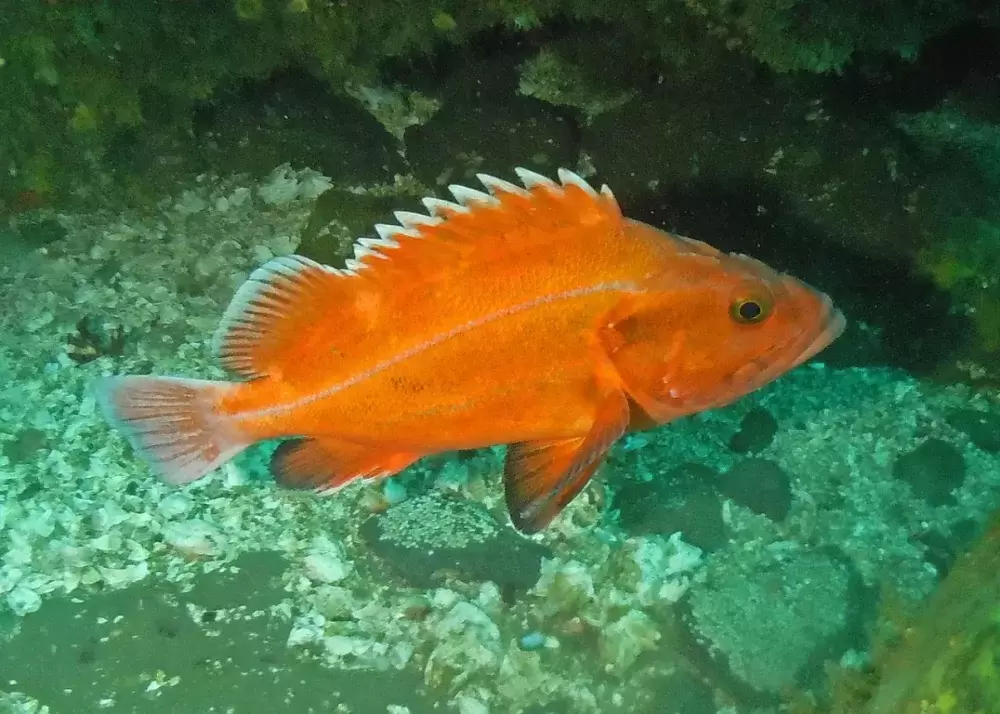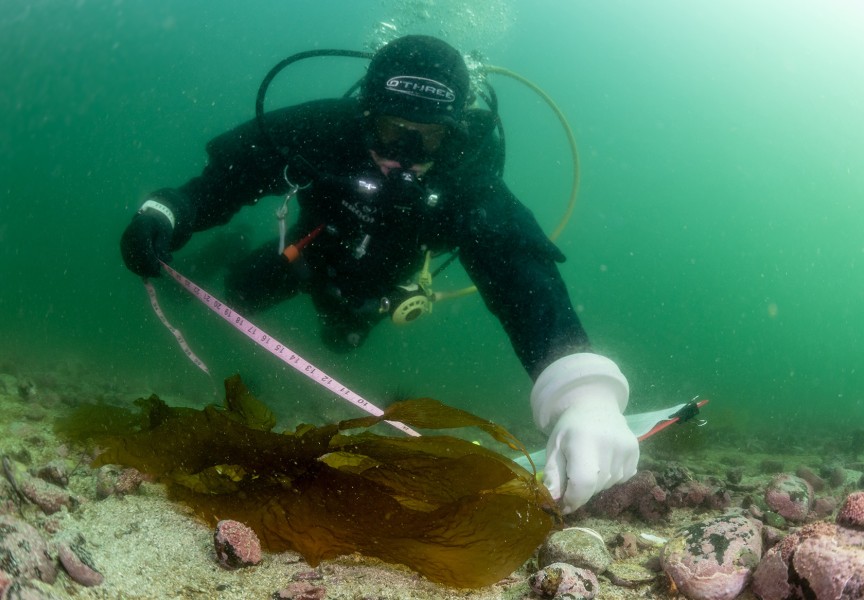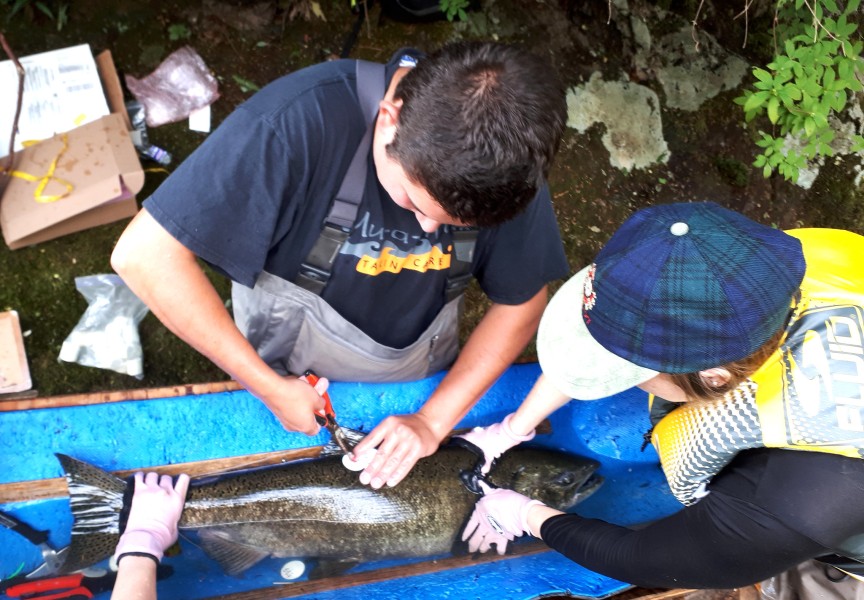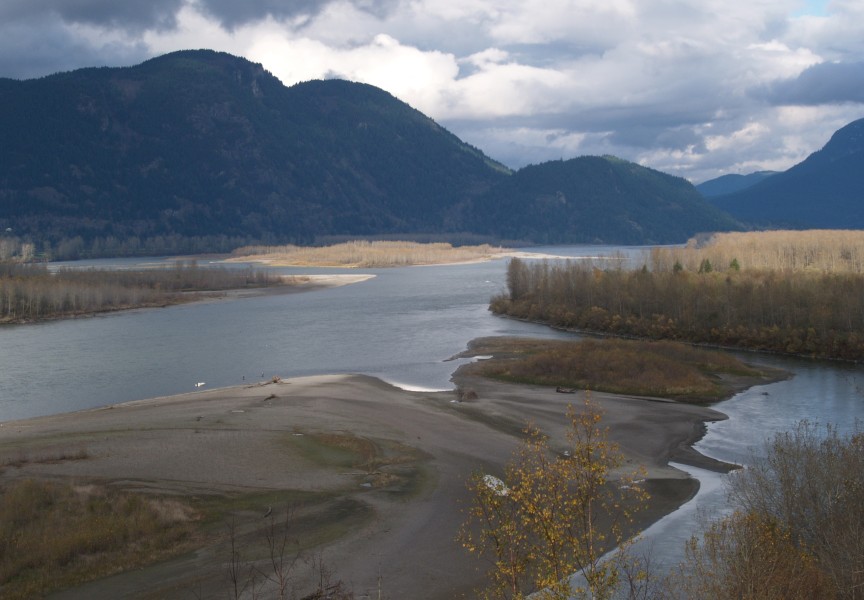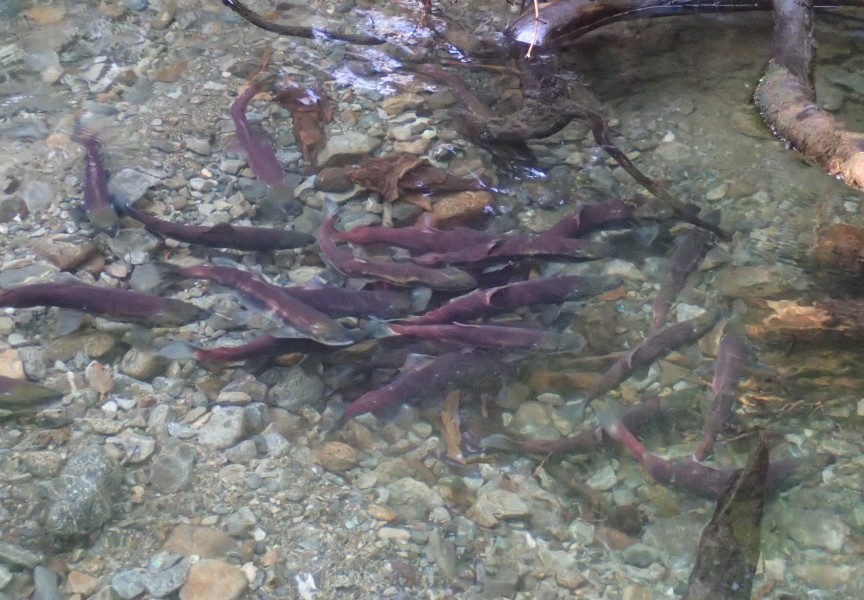There are species of rockfish found on British Columbia’s coast that are known to live for a century.
Despite the longevity of fish like the quillback and yelloweye, which have been documented to live to 95 and 118 years respectively, rockfish are particularly vulnerable to overfishing, and unlike salmon, the small fish usually don’t survive if released after being hooked on a line.
“Often you’ll see them floating on the top as they can’t bring themselves back into depth,” said Neil Ladell, a sustainable fisheries officer with Fisheries and Oceans Canada, during a presentation on Feb. 7 to Nuu-chah-nulth leaders at the Council of Ha’wiih Forum on Fisheries in Port Alberni. “Rockfish are long-lived, slow to grow, late to mature.”
The Hupacasath First Nation hosted the one-day discussion on Rockfish Conservation Areas as the DFO undertakes a multi-year review of a protection initiative the federal department has been pursuing since 2001. After conservation concerns for B.C.’s 38 species of rockfish increased in the late 1990s, in 2003 the DFO introduced areas on the West Coast where commercial and recreational fishing would be limited in order to protect the species’ habitat. These protected areas came to include 164 areas on B.C.’s coast, encompassing a total of 4,800 square kilometres of inshore habitat, including reefs, kelp forests and eelgrass beds.
Fishing for First Nations food, social and ceremonial purposes was determined to have a limited impact on rockfish, but the commercial and recreational industries are considered a threat to the species’ chance of recovery. For this reason, recreational fishing in the rockfish conservation areas is limited to hand picking invertebrates, catching crab, shrimp and prawn by traps, and catching smelt by gillnet. Commercial fishing in the conservation areas can still include these activities as well, plus trawling for scallops, krill and groundfish, and seine or gillnet fishing for sardines, salmon, smelt and herring.
During the presentation, DFO officials said that First Nations were consulted to a limited degree when the rockfish conservation areas were first introduced throughout the B.C. coast. Now input is being sought from the Nuu-chah-nulth and other First Nations to help guide the conservation strategy.
“We’re coming to the nations first,” said Ladell.
Ahousaht member Marion Campbell noted that her nation was not consulted about the conservation areas in its traditional territory. She referenced the ongoing court case with the federal government affecting the fishing rights of Ahousaht and four other Nuu-chah-nulth nations.
“Why are these being created to create roadblocks for our rights-based fishery?” said Campbell of the rockfish conservation areas.
Hupacasath fisheries manager Tom Tatoosh said that the limited extent of fisheries monitoring is “a huge concern” for rockfish conservation, especially since thousands of sports fishing licences are granted each year on the west coast of Vancouver Island.
“I want to make sure that we’re saving the resource for the right reason and the right people,” he said. “As of right now it’s the department that makes the decisions under scientific data. Scientific data today isn’t really working out for what goes on in our traditional territories.”
Karenn Bailey, director of Resources and Economic Development for the Nuchatlaht First Nation, blamed the DFO’s poor management for the decline in rockfish stocks, noting how many rockfish are being caught in a recreational fishery focused on salmon.
“We know that we’re not accounting for all catch,” she said. “Not only salmon are being collected by these sporties in our home waters, they’re also collecting rockfish.”
“Most recreational fishing is not going to be in these areas,” responded Ladell to concerns over the effects of the West Coast sports fishery on rockfish conservation.
Following technical meetings, input from Nuu-chah-nulth nations regarding the rockfish conservation areas was collected by Fisheries and Oceans Canada on Feb. 28 during the Council of Ha’wiih Forum on Fisheries in Campbell River.

